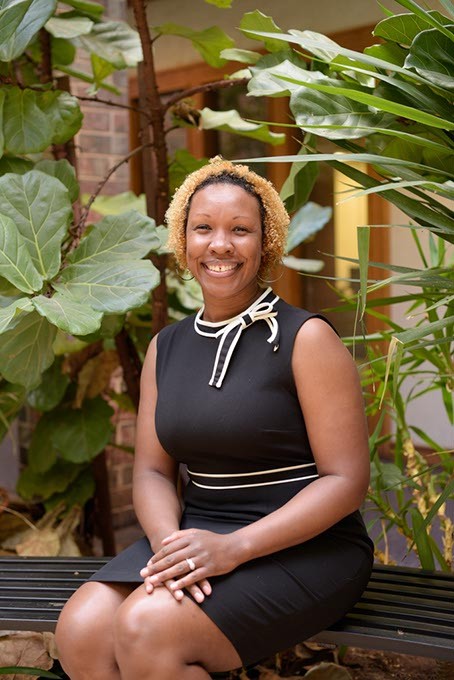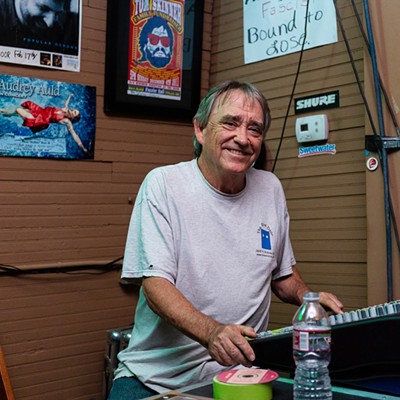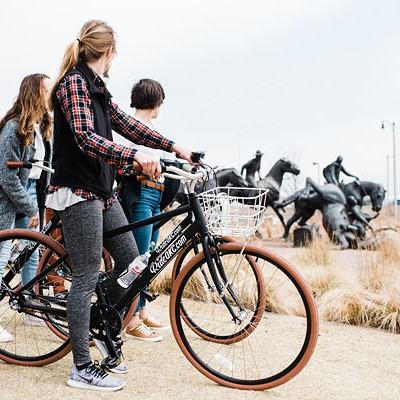
On the morning of Sept. 10, Kendra Coleman walked into Spencer’s Mary Mahoney Memorial Health Center, unpacked her laptop and took a seat at a conference table.
Then she waited.
Nervous and excited about her role as the pro-bono attorney for a new, once-a-month civil legal clinic, she remembers telling herself, “If I can help just one person, then it’s enough. It’s a success.”
By noon, Coleman and a Legal Aid Services of Oklahoma, Inc. attorney had helped a handful of people.
By the end of December, over the course of four monthly Saturday clinics, the two lawyers helped more than 100 rural eastern Oklahoma County residents, advising them on everything from veterans’ benefits to fighting foreclosures and rental evictions.
“For a lot of people, this is their first opportunity to talk to a legal professional because they simply can’t afford it,” said Coleman, an Oklahoma City private practice attorney who lives in the Spencer community. “Sometimes its not a legal issue — they just need legal guidance. Those are the people who love it the most; you shouldn’t have to pay for the small information that you need, but in general, you can’t call a lawyer.”
Rich resource
Hiring a private lawyer is expensive, even for middle-class Oklahomans, which often makes legal help beyond the financial reach of elderly and low-income residents who need guidance on non-criminal matters such as employment, health care, housing or educational or government services.
Some turn to nonprofit Legal Aid Services of Oklahoma for no-cost help. Others navigate the often-complicated legal system on their own.
In general, people in rural and remote areas have difficulty accessing legal services, and Coleman said distance and transportation can make providing legal aid even more challenging.
There’s also a lack of awareness that attorneys can help people protect their livelihoods, health and families.
Mary Mahoney Memorial Health Center operates under the guidance of Community Health Centers of Oklahoma.
It is a vital health care provider for low-income and medically underserved rural eastern Oklahoma County residents.
Patients come from Spencer and its surrounding communities, where median household incomes fall below $32,700.
The federal poverty line for families of four is $24,300 a year.
Even for families with household incomes above the federal poverty level, it is a struggle to make ends meet. Poverty and its effects have devastating consequences on physical and mental health.
Mary Mahoney’s services include preventive and general care, but patients also arrive dealing with issues surrounding poor mental health and are coping with emotional and psychological trauma.
While public health workers address health concerns, residents’ legal needs were largely left untouched.
“We knew that there were individuals that had other issues,” said caseworker Marguerita Shaw. “After reading about [medial legal partnerships], I thought it would be the perfect fit for us. For three months, I searched for an attorney. Kendra was the very first to say, ‘Sure,’ and there was no hesitation. When there is no hesitation, you know it’s from the heart.”
In a medical-legal partnership, health care providers and legal professionals collaborate to address patients’ health-harming civil legal needs.
Improving access
As a Spencer native and Star Spencer High School graduate, Coleman knows firsthand the challenges of accessing social and legal services.
Some families don’t have reliable transportation or multiple people in the household share one vehicle.
As a result, some miss opportunities to access help or can only make it as far as Spencer, a town with just under 4,000 residents.
Traveling the extra 10 miles to Oklahoma City is nearly impossible.
“Many do qualify for Legal Aid Services, but they’ve never gone into the office,” Coleman said. “We get people who come from all the small towns: Spencer, Jones and Choctaw. People in Oklahoma City have access to many services and transportation; that’s not the case out there. Many are not getting what is being offered.”
Coleman and a Legal Aid Services lawyer bring those services to Mary Mahoney Memorial Health Center, 12716 NE 36th St., 9 a.m.-noon April 22, May 20 and June 17 during their monthly Saturday visits.
The health clinic is also open 8 a.m.-5 p.m. those days. Shaw said some clients see both an attorney and a health professional in one visit.
Coleman said the civil legal clinic’s greatest benefit is its ability to offer legal resolutions to veterans, single parents and their children, the elderly and other Oklahoma County residents regarding disability, family, housing and property issues.
She said the clinic is key for answering legal questions that, if ignored, can turn small problems into big ones.
She said she has pondered the question, Where would people turn if there wasn’t a legal aid option?
As the clinic’s caseload continues to grow, Coleman focuses on recruiting attorneys to volunteer their services. She would like to see between five and 10 lawyers contributing to the clinic over a year’s time.
“People ask, ‘How do you spend your Saturday morning there after you’ve been working all week?’ It’s one of the easiest things I do,” Coleman said. “Once you are able to help, there is no better feeling.”
Learn more about Mary Mahoney Memorial Health Center at communityhealthok.org or call 405-769-3301. Learn more about Legal Aid Services of Oklahoma at legalaidok.org or call 888-534-5243.
Print headline: Rural outreach, A new medical-legal partnership at Spencer health center makes a difference for rural Oklahoma County residents who can’t afford to hire attorneys.











